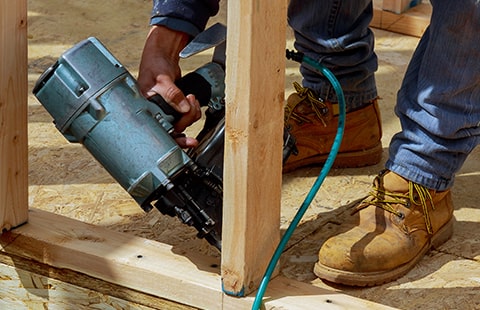Get unique, complex parts easily. No matter your requirements, Chaoyi Spring creates hard-to-produce coil springs and wire forms.
Let us help you create the custom wire form you need, from S-hooks and J-hooks to utility hooks and more.
We work closely with customers across a wide range of industries, helping them design and manufacture made-to-order parts.
Why choose Chaoyi Spring? We prioritize customer-focused collaboration, modern equipment and the latest technology to make your parts per print.
Find the information and guidance you need, from measuring a spring to learning about materials, placing an order and much more.
Garage doors are often taken for granted, silently opening and closing with the push of a button. However, behind this seamless operation lies a crucial component: torsion springs. These coiled


Garage doors are often taken for granted, silently opening and closing with the push of a button. However, behind this seamless operation lies a crucial component: torsion springs. These coiled marvels are the unsung heroes, responsible for lifting and balancing the heavy weight of your garage door. This article will delve into the world of garage door torsion springs, exploring their workings, types, common problems, and how to ensure their longevity.

Garage door torsion springs are the backbone of your door's smooth operation. They're essentially coiled springs, often made of steel, located above the door on a shaft. When you press the button to open the door, the springs unwind, storing energy. This stored energy assists in lifting the door, counteracting its weight. When you close the door, the springs wind back up, absorbing the energy from the downward motion, ensuring a controlled and safe closing.
Not all garage door torsion springs are created equal. They come in different sizes, strengths, and configurations, depending on the door's size, weight, and usage. Let's take a look at the most common types:
Like any mechanical component, garage door torsion springs are prone to wear and tear. Over time, they can become fatigued, lose tension, or even break entirely. This can lead to several issues:
While occasional squeaks and minor sluggishness might not be cause for immediate concern, certain signs indicate it's time for a replacement. Keep an eye out for:
Garage door torsion springs are under immense tension and can be extremely dangerous if handled improperly. They can cause serious injuries, even death. Always err on the side of caution and follow these guidelines:
Proper maintenance can significantly prolong the life of your torsion springs. Follow these steps:
When replacing your springs, choosing the correct ones is crucial. Factor in the following:
When it comes to garage door torsion springs, professional help is invaluable. Hiring a qualified technician ensures proper installation, diagnosis, and replacement. They possess the expertise and tools to safely handle the springs and ensure a safe and smooth-operating garage door.
Garage door torsion springs are essential for the safe and efficient operation of your garage door. Understanding their workings, common problems, and how to maintain them can save you from costly repairs, safety hazards, and unnecessary headaches. By investing in regular maintenance and professional service, you can ensure your garage door remains a reliable and secure part of your home.
Remember, garage door torsion springs are powerful components, and safety should always be paramount. Never attempt to replace them yourself, and seek professional help when needed. By understanding the importance of these springs and taking the necessary precautions, you can keep your garage door operating smoothly and your home safe for years to come.
Browse some of the custom wire forms and springs that we manufacture. Don’t see what you need? We specialize in made-to-order products that meet your application requirements.
Visit Our GalleryNeed a custom wire form or coil spring? We make it work. Fill out the contact form and a representative will respond within 1 business day. If you have a PDF or CAD file, you can submit to request a quote.